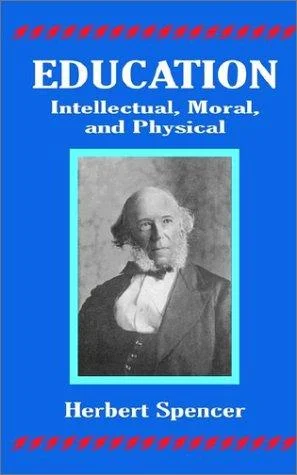Education
Intellectual, Moral, and Physical
(Autor) Herbert SpencerHerbert Spencer (1820-1903) was an English philosopher, best known for his scientific writings. Together with Charles Darwin and Thomas Huxley he was responsible for the acceptance of the theory of evolution. His well-known essay on Education: Intellectual, Moral and Physical was considered one of the most useful and profound books written on education. These four essays on education were originally published between 1854 and 1859. In this this important work on educational theory Spencer criticizes the humanities in education, and emphasizes the importance of science. His conclusion was that "for discipline as well as for guidance, science is of chiefest value. In all its effects, learning the meaning of things is better than learning the meaning of words" Spencer was the most uncompromising opponent of national education under a central government. While addressing himself to the question, "What knowledge is of most worth [to the individual]", he argues for the relegation of classical studies alongside an elevation of the importance of the sciences, especially those concerned with self-preservation and the maintenance of good health. But it was Spencer's last essay, "Physical Education" which is the most valuable in the book. It was written at a time when little attention was given to such matters as food, clothing, play, and sleep. He criticizes severely the absurd restrictions placed upon growing girls by those in authority in the "Establishments for Young Ladies." His remarks had a considerable influence upon the succeeding generation.
Herbert Spencer
Herbert Spencer was a 19th-century English philosopher and sociologist known for his influential work "The Principles of Sociology." He was a pioneer in social Darwinism, applying evolutionary theory to society. Spencer's writing style was clear and logical, making complex ideas accessible to a wide audience. His key contribution to literature was bridging science and philosophy to analyze human behavior and social structures.

